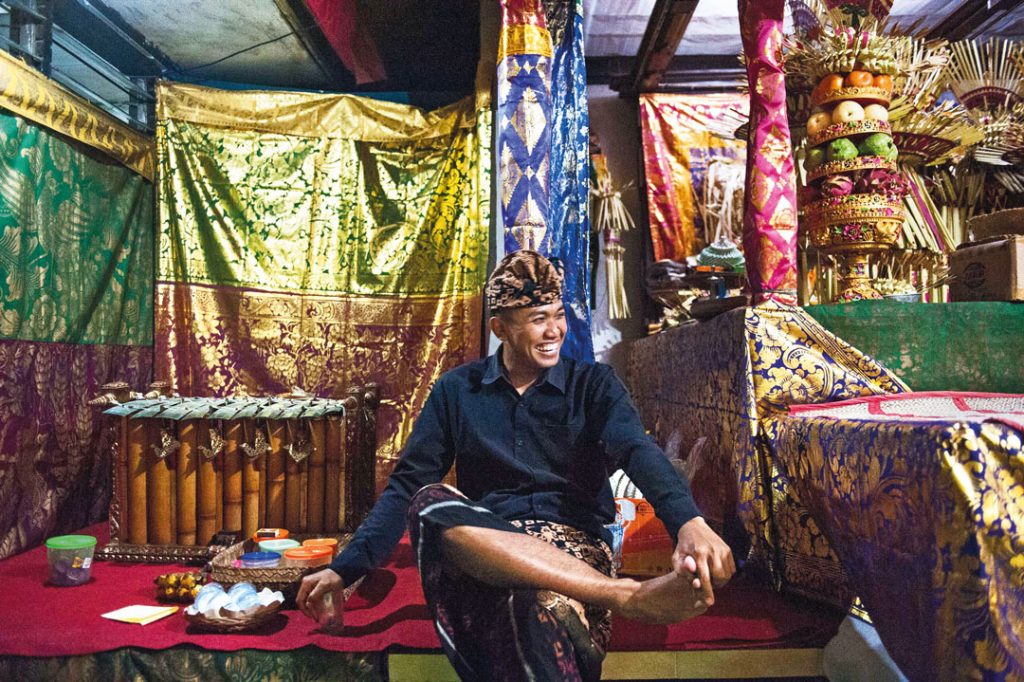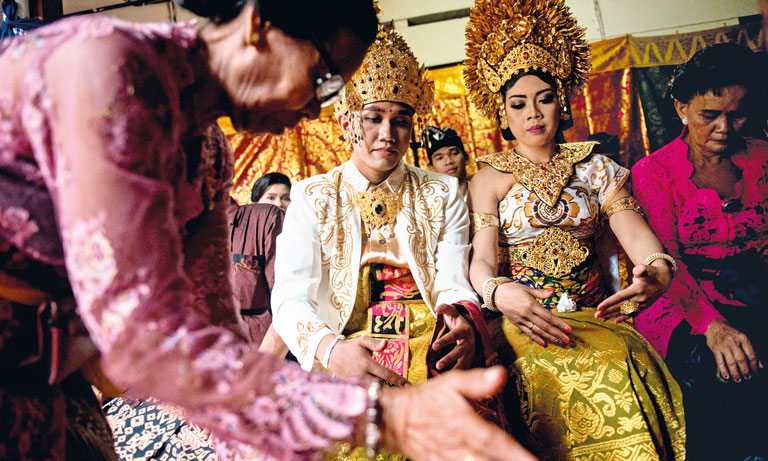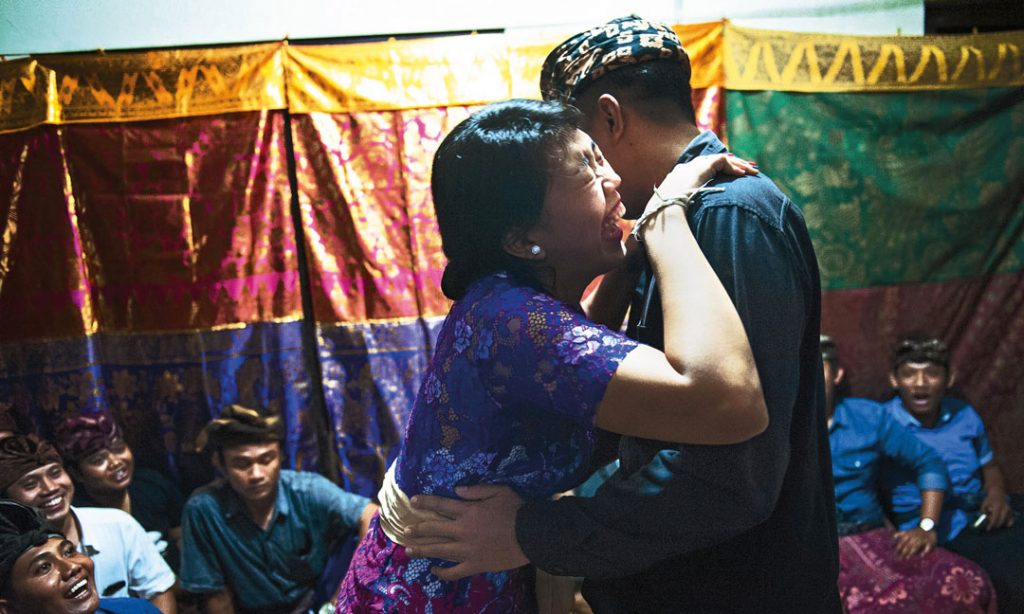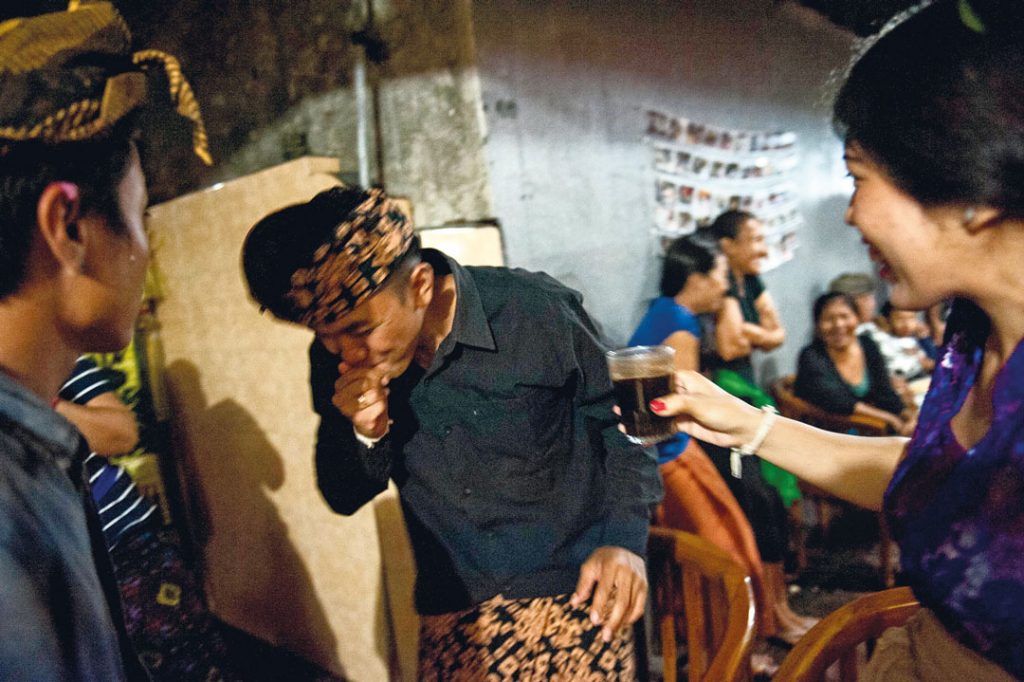Answer these questions – and quickly!
“What is your name? Where do you come from? Why do you want to marry him? When was your first kiss with him? Is he a good lover, or just average?”

Imagine this is you in the hot seat, with the village youth surrounding you, barraging you with all sorts of questions, whilst singing a sexually-corrupted version of “Jingle Bells”.
This is a typical scene that takes place right before a new bride enters her new family compound. It’s called “megesah”, and here in these photos newlywed Novi, a Balinese bride, is enduring the tradition having just married Kadek from Banjar Taman Yang Batu, Denpasar, back in 2017.

Pak Tu, a pecalang (traditional guard) said that the tradition started back in the 1940s when the Rukun Pemuda Taman (RPT), or neighbourhood youth group, was established.
The aim of the tradition is simple, to familiarise a bride with her new partner’s family members and neighbours. This is so that when she wanders her compound, she won’t hesitate to greet someone as the megesahensures she’s met them before. Yes, despite the crude language, it’s all in the name of good, honest fun.

Of course, most brides feel uneasy when strangers raise questions about their past love lives and personal (sexual!) experiences – usually topics reserved for conversations only between bride and groom. The experience is said to be ‘training’, helping the couple to guard against any issues they may face in the future as husband and wife. It helps them strengthen their mentality, for example when people talk behind their backs, or when they come under constant barrage of ‘baby questions’: “Why is it taking you so long to have a child?”, “when will you have a second baby to accompany the first born?” Or even negative comments like, “Are you sure there’s nothing wrong with your wife? She can’t give you a baby!”

After a series of embarrassing and revealing questions, at the end of megesah, the young interviewers will then invite the couple to showoff their romance by kissing, then enjoying a specialty Balinese snack and sweet coffee. Specialty, however, means the scheming interviewers have likely added their own special ingredients for tea time, like stirring shrimp paste into the coffee or hiding spicy chillis inside the snack. The prank snacks are said to be symbolic of marriage, a reminder that what may taste sweet at the beginning, may have another taste along the way.
Trust the Balinese to find a way to merge pranks with philosophy and tradition!






